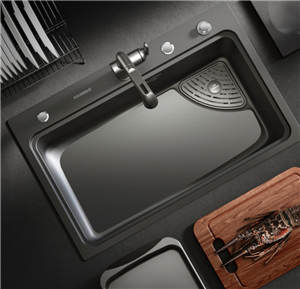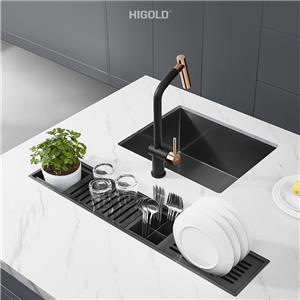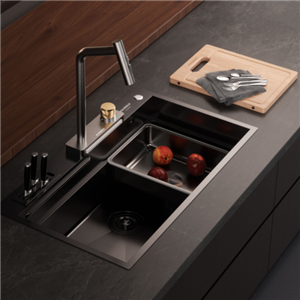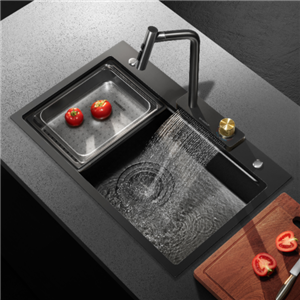Why do my kitchen composite sinks break?
In modern kitchen decoration, composite kitchen sinks have become the first choice for many families due to their beauty, durability and functionality. However, despite the many advantages of kitchen composite sinks, some users may encounter the problem of sink cracking during use. Sink cracking not only affects the beauty of the kitchen, but may also bring unnecessary economic losses and repair troubles. Therefore, understanding the reasons for the cracking of kitchen composite sinks can help users avoid similar problems during selection, installation and use.
This article will deeply analyze why kitchen composite sinks break from multiple aspects such as the material characteristics, use environment, installation methods and daily maintenance of kitchen composite sinks, and provide users with solutions and preventive measures.
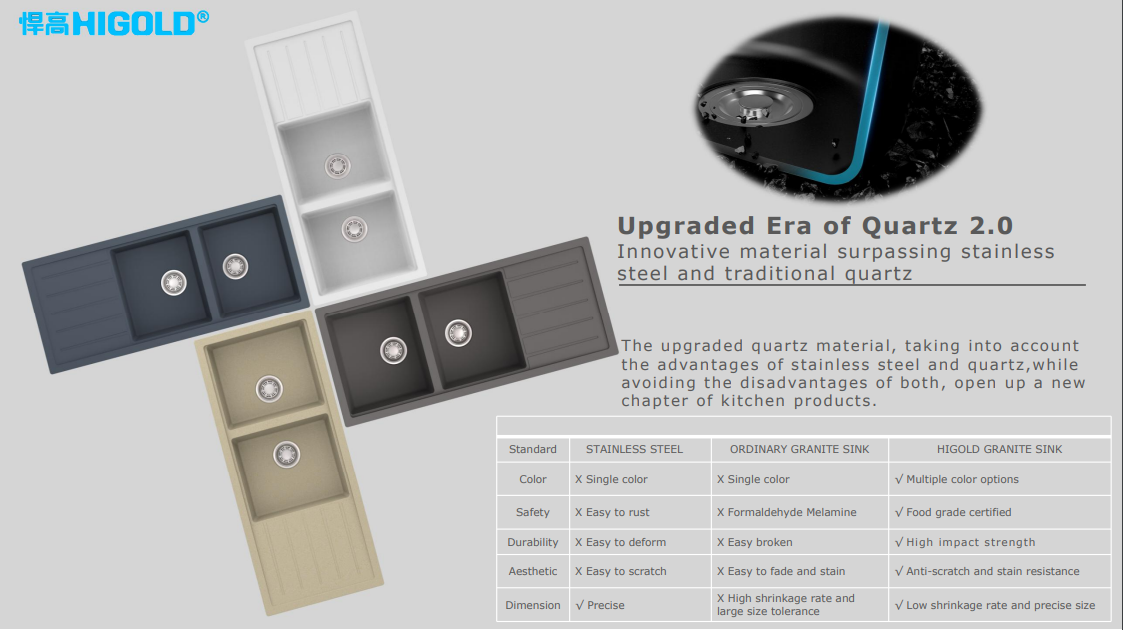
Material composition and characteristics of kitchen composite sinks
Kitchen composite sinks are a mixture of various materials such as quartz, granite, and ceramics, and are usually made by high-pressure technology. Its main advantages are high hardness, scratch resistance, and high temperature resistance, which are suitable for the various needs of modern family kitchens. Different brands and models of kitchen composite sinks may have different specific materials and production processes, but in general, most composite kitchen sinks have the following characteristics:
● High temperature resistance: Kitchen composite sinks can withstand temperatures up to 280°C, which allows them to be used for a long time in kitchen environments such as hot water and grease.
● Scratch resistance: Due to the use of hard materials such as quartz and granite, kitchen composite sinks have strong scratch resistance and are suitable for daily kitchen use.
● Anti-fouling: Kitchen composite sinks are usually not easy to absorb oil and stains, and are easy to clean.
However, despite the durability of kitchen composite sinks, they are not indestructible, especially when they are hit by external forces or improper use, they may still break. Next, we will discuss in detail the reasons for the breakage of kitchen composite sinks.
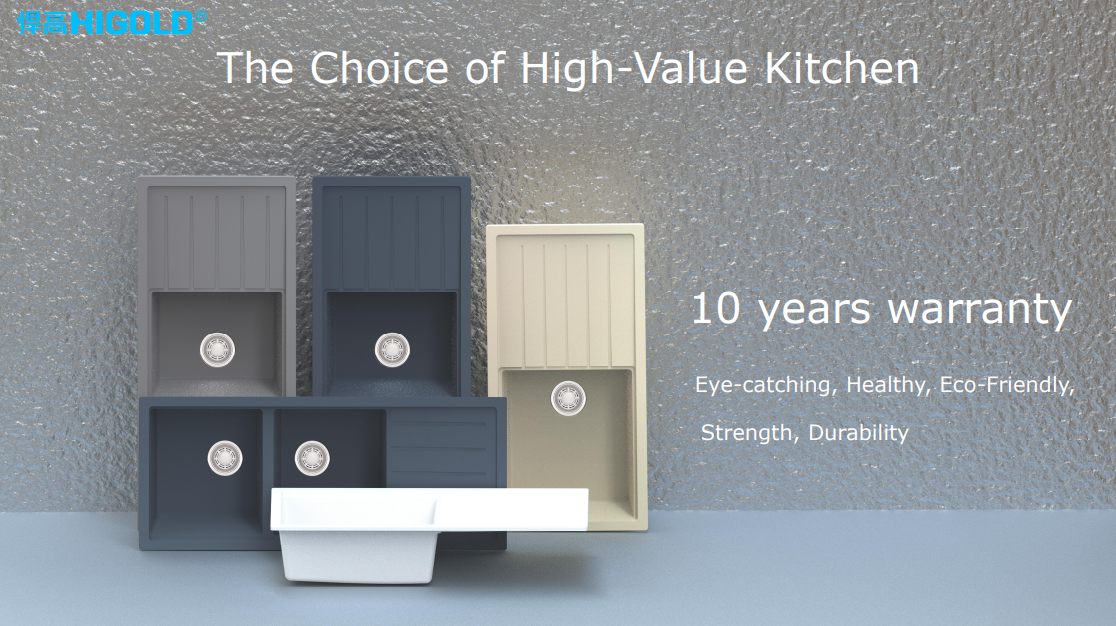
What are the reasons for the breakage of kitchen composite sinks?
1. External impact or impact
Although kitchen composite sinks have strong hardness and wear resistance, they are brittle and are prone to breakage, especially when they are hit by strong impact. Common external force impacts include:
● Heavy objects falling: In daily use, if heavy objects in the kitchen (such as pots, glass containers, etc.) fall into the sink, it may cause cracks or ruptures in the sink. Especially the edges or corners of the sink, where the force is most concentrated, are prone to cracks.
● Sharp objects collision: The violent collision of hard objects such as knives and spatulas with the sink may also cause the sink to rupture. Especially under high temperature conditions, the material on the surface of the sink will be more fragile.
2. Improper installation
The installation requirements of kitchen composite sinks are relatively strict, and any small mistake may cause the sink to rupture. Common installation problems include:
● The sink is not level with the countertop: If the bottom of the sink is not in full contact with the countertop during installation, or there is a gap between the sink and the countertop, this imbalance will cause the sink to be subjected to uneven pressure during use. Over time, this pressure accumulation may cause cracks in the sink.
● Improperly fixed sink: Kitchen composite sinks usually need to be fixed under the countertop by bolts or brackets. If the sink is not fixed firmly during installation, the sink may be displaced due to gravity or other external forces, resulting in cracks.
● Too large countertop hole: When installing composite kitchen sinks, the countertop hole needs to be cut according to the size of the sink. If the hole is too large, the sink is not supported enough, which may also cause cracks or cracks.
3. Drastic temperature changes
Although the material of kitchen composite sinks can withstand high temperatures, excessive temperature changes will still have a certain impact on it. Especially in the kitchen, the sink is often exposed to alternating hot and cold water. If the temperature difference between hot and cold is too large, the surface of the sink may be affected by thermal stress and eventually crack. Common situations include:
● Putting a hot pot directly into a cold sink: In the kitchen, high-temperature pots are often placed directly in the sink. This large temperature difference may cause the sink to crack.
● Prolonged exposure to high temperatures: For example, using hot water to clean grease for a long time, or directly putting a hot plate from the oven into the sink, the extreme temperature difference may have a negative impact on composite kitchen sinks.
4. Improper use or cleaning
Although kitchen composite sinks have a high hardness, they also need proper maintenance and use. In the case of improper use or cleaning, the sink may crack. Common mistakes include:
● Use of inappropriate cleaning tools: Some cleaning tools, such as steel wool, hard brushes, etc., may scratch the surface of the sink, especially the surface of the sink with coating or special gloss. Long-term use of improper cleaning tools may cause surface cracking.
● Chemical corrosion: Strong acid or alkaline detergents may corrode the surface of kitchen composite sinks if used for a long time, weaken the durability of the sink, and cause surface cracking.
5. Quality problems of the sink itself
Although most kitchen composite sinks have undergone strict quality control during the design and production process, it cannot be ruled out that some sinks may crack due to material problems or production defects. Poor quality kitchen composite sinks may have the following problems:
● Uneven material: The raw materials of kitchen composite sinks may be unevenly proportioned or insufficiently mixed, resulting in insufficient hardness in some areas and prone to cracks.
● Production process problems: During the production process, if the surface of the sink is not properly treated or the heating and cooling are uneven, it may also cause its structure to be unstable and crack during use.
6. Aging and wear of sinks
After long-term use, the durability of kitchen composite sinks will gradually decrease, especially sinks exposed to various kitchen environments. As the surface of the sink gradually wears, the compression and tensile properties will decrease. Aging sinks may crack due to excessive pressure, especially at the edge or bottom of the sink.
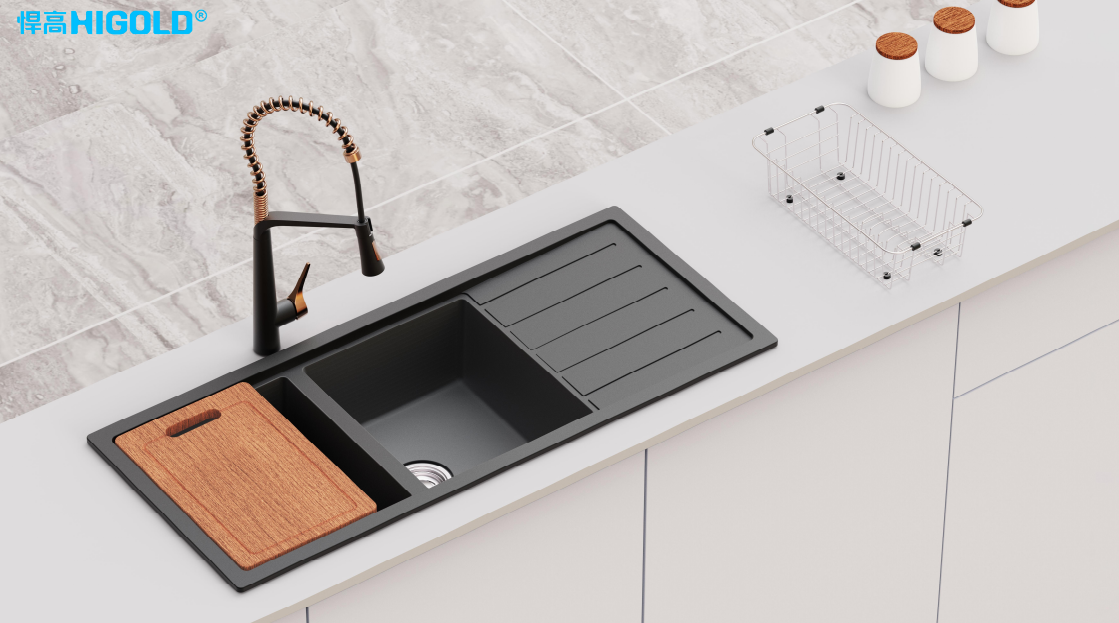
How to avoid kitchen composite sinks from cracking?
1. Install the sink correctly
When installing kitchen composite sinks, be sure to ensure that the contact between the sink and the countertop is fully and evenly spaced to avoid gaps. At the same time, make sure the sink is firmly fixed and not loose. You can ask a professional plumber or installer to install it to ensure that every link meets the standards.
2. Avoid drastic temperature differences
When using kitchen composite sinks, avoid placing hot items directly into cold water sinks to avoid cracks caused by thermal stress. For example, a hot pot should be allowed to cool naturally before being placed in the sink, rather than being placed directly in the sink. When cleaning, avoid rinsing the sink with extreme temperatures.
3. Check the sink regularly
Check the surface, sides and bottom of the sink regularly for cracks or damage, especially after long-term use or heavy objects hit, and repair small cracks in time to prevent further deterioration.
4. Choose a high-quality sink
When purchasing kitchen composite sinks, it is recommended to choose well-known brands and products with good after-sales service to avoid sink cracks due to quality problems. When purchasing, you should check the material, thickness, surface treatment and other information of the sink to ensure that the sink has sufficient durability.
5. Use appropriate cleaning methods
Use non-corrosive, mild detergents and soft cleaning tools, and avoid using steel wool or other hard objects to avoid scratching the sink surface. In addition, avoid using strong acid and alkali chemical cleaners to reduce corrosion to the sink.
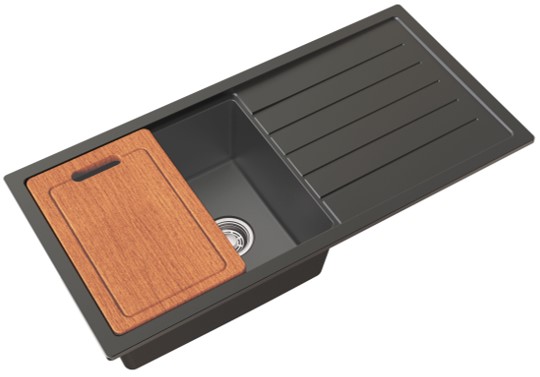
Manufacturer of Premium Stainless Steel Kitchen Products
Higold Group Co., Ltd. is a top manufacturer and supplier of high-quality stainless steel kitchen products. We specialize in both hand-crafted and machine-made Inox sinks and faucets, offering bulk discounts and wholesale rates for businesses around the world. With over 500 patents and certifications like CUPC, CSA, and CE, we ensure that our products meet global standards. For competitive pricing and personalized service, reach out to us today for your next bulk purchase.

